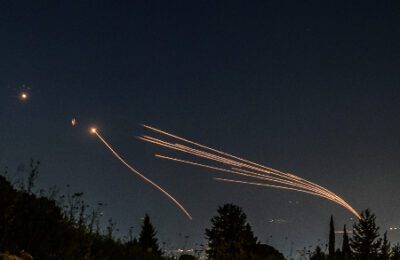THERE are two types of memory: spiritual and historical.
Or, put it this way: There is memory from the point of view of G-d and memory from the point of view of man.
Still another way: The distinction is between mourning and knowledge; or between yearning and action.
Finally, look at the distinction this way: between Tisha bAv and Kristallnacht.
Permit me to unfold all this.
The deeper memory is spiritual. This is the memory of Tisha bAv, the identification of each Jew with our long history, our collective spiritual failings, and G-ds response to them. Tisha bAv is also G-ds promise of ultimate redemption.
This first type of memory allows for no break between the Holocaust and previous epochs of Jewish tragedy. We are one people, with one G-d, one mission, and, if we fail at that mission, our suffering links us to all previous epochs of Jewish tragedy.
The vocabulary of spiritual memory is faith, mourning, prayer and continuity.
It was a great error and confusion on the part of many Jews to sever Holocaust remembrance from Tisha bAv.
Those who endorse this severance state, sometimes implicitly and often explicitly, that the relationship between G-d and the Jewish people might be found in pre-Holocaust epochs of Jewish suffering, but not in the Holocaust.
However we are to understand or not understand the enormity of the Holocaust, or, for that matter, all of human suffering, Heaven forfend that the Holocaust is taken to have severed the Jewish people from G-d!
Yet, that is the approach of those who would sever Holocaust remembrance from Tisha bAv. To them, Tisha bAv is the past, over and done with; Holocaust is the new theological reality. Jewish history is split in two. There is no continuity, no eternity, to G-ds promises to the Jewish people. G-d forbid!
NONE of this, however, touches historical memory.
It is a different exercise.
It has a different purpose.
Historical memory raises issues not of our relationship to G-d, or of G-ds relationship to us.
Historical memory raises issues of Never Again of human determination to counter those who would kill or harm the Jewish people.
The vocabulary of historical memory is knowledge, analysis, strategy and action.
Historical memory may be symbolized by Kristallnacht because that event the massive destruction of German Jewish institutions in one night, along with the murder or enslavement of tens of thousands of German Jews that same night, November 9-10, 1938 began the Holocaust.
Read the related blog posting, “Kristallnacht remembered…73 years later”
And, historically speaking, the Holocaust is the most important address of historical memory. This is because the Holocaust, as the most recent epoch of massive Jewish suffering, is the paradigm adopted by the enemies of the Jewish people.
If we want to watch out, if we want to be alert to the diabolical plans of our enemies, if want to get inside their skin in order to know how to combat them, then it is the Holocaust generally, and Kristallnacht symbolically, that we must know and understand.
It is said that the Holocaust was unique.
Unique means one of a kind, never duplicated.
We want to keep it that way.
The exercise of historical memory says: We want to make certain the Holocaust is never duplicated.
The remembrance of Kristallnacht is critical because it compels us to see the Ahmadinejads of the world for what they are.
I must also add that the remembrance of Kristallnacht should also compel the Jewish people to recognize and combat any tyrant who would aspire to commit genocide against any people. The post-Holocaust list is, alas, long: Biafra, Cambodia, Rwanda, Bosnia, Sudan, for example.
There is another list: the names of Jews who fought to counter those tyrants. We should be proud of that list. By remembering Kristallnacht, by studying the Holocaust, and thus learning how to grasp the goals of post-Nazism Nazis, we are capable of seeing them, whether their target is Jews or others.
TISHA bAv links the Jews of now to the past.
Remembrance of Kristallnacht makes sure we will sustain that link into the future.
Tisha bAv brings tears.
Remembrance of Kristallnacht instructs us how to prevent future tears.
Tisha bAv says: Mourn.
Remembrance of Kristallnacht says: Act, to prevent future mourning.
Tisha bAv says: On the day the Temple was destroyed the Messiah was born.
Remembrance of Kristallnacht says: Let us hasten the Birthday Party.
Copyright © 2011 by the Intermountain Jewish News
















